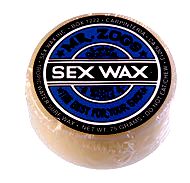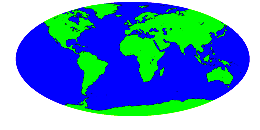Surf Wax packaging decorated with Eco-friendly Eco-Slogans is becoming a highly effective online marketing strategy since many people are prepared to accept these claims at face value. At Sexwax, we use Paraffin wax because the base material in most our surf wax formulations since it is crucial in creating what we should say is the very best surf wax in the world. It&rsquos also important to note that from your ecological perspective, the Soy wax utilized in the majority of the so known as “GREEN WAX” formulas shares many common attributes with Paraffin wax. For any thorough and much more nuanced knowledge of Sexwax&rsquos effect on the atmosphere, please evaluate the following analysis and internet links towards the source material which it’s based.
May Be The WAX BIODEGRADABLE?
PARAFFIN – YES, SOY WAX – YES
Both Paraffin wax and Soy wax are biodegradable 1 and compostable. With Soy wax, the hydrogenation process converts soybean oil right into a molecule that’s essentially just like paraffin, so that they both decompose in an exceedingly similar manner.
May Be The WAX NON-TOXIC?
PARAFFIN – YES, SOY WAX – YES
Both paraffin wax and soy wax are non-toxic. Both goods are really approved for limited use as food additives through the Food and drug administration 2.
May Be The WAX ORGANIC?
PARAFFIN – NO, SOY WAX – NO
Within the conventional USDA food/cosmetic sense, both paraffin wax and hydrogenated soy oil (wax) are thought synthetic and non-organic 3. If your company put either of those products inside a food and labeled it as being organic they’d enter trouble. Even though you start with organic soy oil, the nickel-catalyzed hydrogenation reaction that converts the oil to some wax helps make the resulting wax non-organic. Some companies declare that their soy-based surf waxes are organic, but there’s no regulatory agency that enforces, or perhaps defines, what constitutes a natural surf wax. Firms that claim hydrogenated soybean oil is organic can avoid false-advertising charges because, in chemistry, any chemical comprised of carbon atoms is called “organic”. So, a chemist would make reference to any type of wax being an organic compound 4, however this is not use the USDA&rsquos Organic designation that’s put on food along with other products within the supermarket.
May Be The WAX “EARTH FRIENDLY”, “NATURAL”, “ECO-SAFE”, OR “GREEN”?
PARAFFIN – ???, SOY WAX – ???
It’s impossible and pointless to find out or no product could be characterised based on vague advertising terms that don&rsquot have specific meaning 5. None of those pseudo-ecological terms really mean anything and advertisers may use them nonetheless they like. If you wish to state that paraffin wax or soy wax are earth friendly, eco-safe, eco-friendly, natural, or that they’re not, go right ahead, no-one can dispute what you’re saying.
Will The WAX CONTAIN PETROCHEMICALS?
PARAFFIN – YES, SOY WAX – YES

Paraffin wax is acquired when oil is broken into its individual components. The wax is a petrochemical and extra hydrocarbon energy is needed to move and refine the wax from oil. Most Soy beans are genetically engineered 8 and grown with petrochemical fertilizers, petrochemical pesticides and petrochemical herbicides. Additional petrochemical energy is consumed once the soy beans are transported to processing facilities and also the oil is extracted using hexane 9 (another petrochemical). Soy bean oil is transformed into wax through hydrogenation, by which hydrogen gas is catalytically combined with oil. Hydrogen gas is created industrially via a process known as methane steam reforming 10, where gas (a petrochemical) and water are damaged up into hydrogen gas and co2. Consequently, whether or not the soybeans were grown, transported and also the oil was extracted with no petrochemicals, in order to be a wax they need to have hydrogen (produced from petrochemicals) put into them.
May Be The WAX A RENEWABLE RESOURCE?
PARAFFIN – NO, SOY WAX – NO

Paraffin wax is made of oil which is not really a renewable resource. It’s theoretically easy to manufacture soy wax inside a renewable fashion however, it’s not carried this out way. Actual commercial manufacture of soy wax involves non-renewable petrochemical sources at every stage of production (fertilizers, pesticides, herbicides, transportation, oil extraction and hydrogenation).
Will The WAX Have NEGATIVE Ecological IMPACT?
PARAFFIN – YES, SOY WAX – YES
Paraffin wax is made of oil that is a non renewable resource. There’s possibility of ecological damage in removing and transporting oil. Energy is needed to extract, transport and refine the oil. If permitted to biodegrade, paraffin wax will release co2 which was formerly sequestered.
The present manufacturing process for converting soy beans to soy wax involves non-renewable petrochemical feed-stocks and a large amount of energy. Most Soy is genetically modified and grown with petrochemical fertilizers, petrochemical herbicides and petrochemical pesticides, all non-renewable.

Negative impacts connected using the oil that paraffin is refined from should also be connected with soy wax to some extent, becase of all of the petrochemicals accustomed to produce soy wax. Growing soy also requires a large amount of water, an origin that’s becoming scarcer. Diverting food crops to industrial use has led to food shortages, rising food prices6 and deforestation of formerly uncultivated land. These effects happen to be documented because of elevated biodiesel production. When formerly uncultivated land is deforested to satisfy the growing interest in industrial crops, co2 emissions can really be greater than if oil were utilised 7.
At this time there’s plenty of research and heated debate concerning the ecological impacts connected with biodiesel and oil diesel. Because biodiesel is made of vegetable oil, much like soy wax, this debate is sort of similar towards the question of paraffin wax versus soy wax. Anybody thinking about this subject should stick to the biodiesel debate, specially the indirect land use change aspect that’s presently raging within the Eu and also at the Environmental protection agency.
References
- http://en.wikipedia.org/wiki/Organic_compound
- http://www.nytimes.com/2008/10/08/world/europe/08italy.html
- http://www.reuters.com/article/2011/07/15/us-eu-biofuels-idUSTRE76E2PI20110715
- http://www1.eere.energy.gov/hydrogenandfuelcells/production/natural_gas.html
Resourse: https://sexwax.com/surf-wax-ecological/
